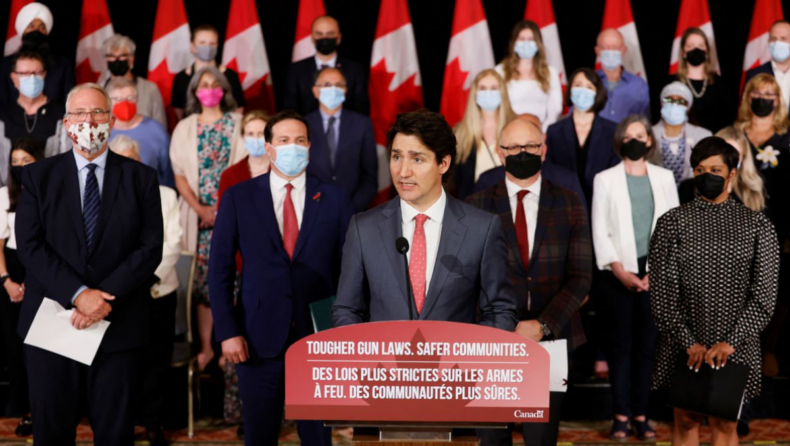Canada’s government introduced legislation Monday to implement a “national freeze” on selling and purchasing handguns and limited magazine capacities as part of a gun-control package.
This new legislation, which revives some measures shelved amid a national election last year, comes just a week after a shooter in Uvalde, Texas, killed 19 children and two teachers in their classroom.
Prime Minister Justin Trudeau told reporters that new measures were needed as gun violence increased. “We need only look south of the border to know that if we do not take action firmly and rapidly, it gets worse and worse and gets more difficult to counter,” he said. The handgun freeze would have exceptions for elite sports shooters, Olympic athletes, and security guards. Canadians who already own handguns could keep them.
In part, authorities do not expect run-on handguns because they are already heavily regulated, an official said in a briefing. Canada has more vital gun legislation than the United States, but while its gun homicide rate is less than one-fifth of the U.S. rate, it is higher than that of other wealthy countries and has been rising. For example, in 2020, it was five times Australia’s rate.

According to Statistics Canada, the rate in 2020 and 2017 was the country’s highest since at least 1997.
Several hundred assault weapons, like the AR-15 rifle, were banned in Canada two years ago in the wake of a mass shooting in Portapique, Nova Scotia – a move some firearms owners are contesting in court. Meanwhile, Public Safety Minister Marco Mendicino announced the “imminent launch of the initial phase” of a program to buy back and compensate owners of such weapons.
Although the Liberals hold a minority of seats in Parliament, the legislation could succeed with the support of the left-leaning New Democratic Party. The proposed legislation will prevent anyone under a protection order or involved in domestic violence or stalking from obtaining or maintaining a firearms license.
In addition, the law will require long-gun magazines to be permanently modified, never to hold more than five rounds, and prohibit the sale or transfer of large-capacity magazines.
Moreover, toys that look like real guns, such as airsoft rifles, would be prohibited by the new laws. Last week Toronto police shot and killed a man carrying a pellet gun. ”Because they look the same as real firearms, police need to treat them as if they are real. But, unfortunately, this has led to tragic consequences,” Justice Minister David Lametti told reporters.

As president of the Canadian Police Association, Tom Stamatakis welcomed some changes, such as the “red flag” provisions for domestic violence. Still, he said he would like more information on enforcement and resource allocation for measures such as the handgun freeze.
A crackdown on fake guns, which he called a “big challenge,” was entirely supported by him. “You cannot distinguish between a replica firearm and a real firearm, particularly when these incidences involving replica firearms often occur in very dynamic, quickly evolving circumstances.” Rod Giltaca, the Canadian Coalition for Firearm Rights director, called the handgun freeze “absurd.”
Authorities do not use the tools they already have to combat gun violence, such as contacting references on gun license applications.
Read More : Canada To Ban Handgun Sales In Trail Of Texas School Shooting













